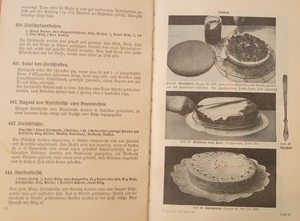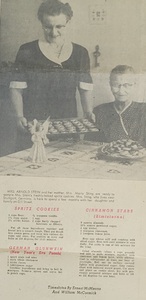Culinary Bridges
The Rocket wives played crucial roles in helping their families adapt to life in the United States. They often hosted gatherings, creating a sense of community among the German expatriates and their American neighbors.
One of the prominent ways these women connected with others was through their culinary practices. Their foodways served as a significant means of establishing connections, especially as many of them were in the process of learning English. By sharing and cooking food, they created a bridge to their new environment, facilitating integration and communication despite language barriers, transportation limitations, and limited opportunities.
Cooking gave the Rocket Wives a way to maintain emotional stability during times of change and uncertainty, providing them with familiarity and consistency in their daily lives. By sharing their cooking skills and traditional foods, some of the Rocket Wives were able to share a portion of their heritage through newspaper articles sharing recipes, organizing and hosting meals through the St. Marks Lutheran church, such as Easter and Christmas meals and celebrations.
Gisela Rieger shared a story about her mother Martha Stein's experience moving to the States. Immigrating to America in the early 1950s with her small children, Martha could not speak fluent English. The neighbors at their new Huntsville residence welcomed them to the community. Although they could not converse well through the language barrier, Gisela recalls how their Huntsville neighbors were interested in her mothers cooking and they would often share and exchange food. This was a common use of gendered currency and connection experienced by the German Rocket Wives; whether limited by transportation or broken communication, culinary bridges were an accessible and viable means of community and belonging in a Southern culture.


